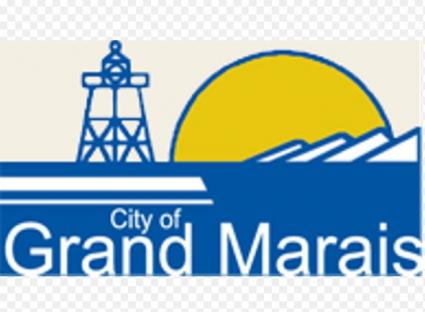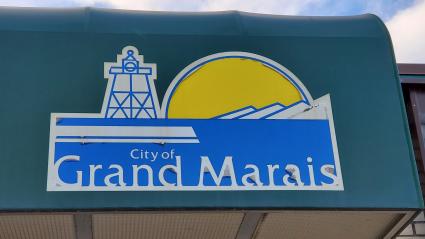Grand Marais Planning Commission considers first floor rentals in downtown area
At the June 6 Grand Marais Planning Commission meeting, two commission members were absent, but because a new planning commission member has come on board, there was still a quorum. So the meeting went on with members Tim Kennedy, Hal Greenwood and new member Stacy Hawkins quickly agreeing to recommend approval of a variance. They went on to spend more than an hour talking about lodging in downtown Grand Marais.
The variance was for homeowners Jeff and Sue Cadwell to add a deck onto their home, five feet into the lot setback. Because the deck is on the rear of the house and has minimal impact on the neighboring property, the commission unanimously approved the variance.
For the rest of the meeting, commissioners followed up on earlier discussion about retail and lodging services in the Grand Marais downtown commercial district—and about what businesses want the downtown area to look like.
City Administrator Mike Roth said the issue was brought to the city by local business owners. He said some feel lodging on the first floor in the downtown waterfront zone could negatively impact retail businesses in the city. He used the term “critical mass of retail,” which brought questions from the planning commission.
Stacy Hawkins asked what percentage would be considered “critical mass.” Hawkins said she believes that ideally, the downtown area should be 99 percent retail.
Planning Commissioner Kennedy said just saying that first floor lodging should not be allowed wouldn’t be a strategy to reach that goal. He suggested that lodging would be better than a downtown building sitting vacant.
Roth also said the city has been working to create a pedestrian-oriented downtown. He said there are concerns about the “vibrancy” of downtown Grand Marais.
Roth said the city’s new Communication Specialist Patrick Knight had conducted a survey of business owner about their concerns.
Knight said he used county records to find addresses of downtown business and property owners. He reached out to 110 property owners in the core downtown waterfront zone. He said about 50 percent of those people responded and he distributed a summary.
Administrator Roth stressed that the survey was not a “vote” or a referendum on what the planning commission and city should do. He said it was information gathered for the commission to consider.
Planning Commission Member Greenwood said it looks like the majority of respondents are opposed to lodging on the first floor of businesses downtown. He said he has repeatedly heard that opinion anecdotally.
Greenwood said the reason Grand Marais earned the recognition as “America’s Coolest Small Town” was because of the Crooked Spoon restaurant, the Donut Shop, the stores in the downtown corridor and so on.
Roth shared some methods that other cities have used to handle this question, such as not allowing lodging anywhere other than in an area zoned to allow lodging; to requiring a special use permit or license for lodging; to allowing lodging only on certain floors or to allowing lodging, but only if it includes some sort of retail storefront.
There was considerable discussion of what a vibrant downtown would look like and the commission finally turned back to Administrator Roth for his recommendations.
Roth said currently, lodging is allowed on the first floor in the downtown district. He said if the city wanted some control over that, it could change its ordinance to require a conditional use property for first floor lodging. That way the planning commission could consider possible lodging properties on a case-by-case basis.
Or, Roth said the city could allow lodging on the first floor, but require that there be some sort of retail space on the street front of the building.
Or lastly, Roth said, the city could adopt a “vitality requirement.” He said for example, in the past, when the city was only allowed four restaurant liquor licenses, the city required those businesses to be open all year. That was intended to help the overall restaurant business in the city.
Although she was willing to hear from the public to see what it wants, Hawkins said she was leaning toward requiring a conditional use permit. Kennedy wasn’t sure that was the best strategy and said that more community input was needed.
Cook County Chamber Director Jim Boyd was at the meeting and he said the town creates the conditions under which businesses “survive and thrive.”
Boyd said if the city had some sort of “vitality requirement” in place, it would have prevented the former Harbor Inn restaurant space from becoming a blank wall in downtown. Boyd said where once there was a thriving business, there is now an empty block.
There was brief discussion of whether or not the city should place a moratorium on first floor lodging until these decisions are made. It was decided to move ahead without a moratorium and the commission directed Administrator Roth to put together alternatives for further discussion for the next planning commission meeting.
The planning commission will then host a public meeting to share those ideas.
Tweet






